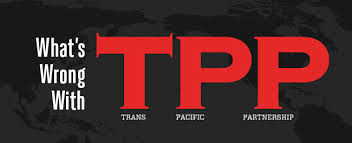The United States' trade gap with Japan is second only to China, $76.3 billion for 2012. Two-thirds of that is due to automotive products.
U.S. lawmakers who represent manufacturing districts sent a letter to President Obama objecting to Japan's entry into the talks. CQ today reported:
Dozens of Democrats in the House and Senate on Thursday lacerated Japan over long-standing barriers that have kept U.S. cars out of the Japanese market, warning that a slowly recovering American auto industry would suffer even more economic pain if Tokyo is allowed to join an Asia-Pacific free-trade agreement.
In a letter to President Barack Obama, 35 Democratic House members, many of them members of the Ways and Means Committee, and eight senators, including Michigan’s Carl Levin and Debbie Stabenow, noted that Japan’s web of regulations that effectively blocks U.S. automakers from selling their cars and trucks in Japan is too deeply rooted to be resolved by the trade agreement, known as the Trans Pacific Partnership (TTP), an initiative launched by Obama in 2010.
“These long-standing, economically harmful practices are not susceptible to cursory negotiation at this stage, three years into the U.S. involvement in the TPP negotiations and close to the administration’s target date of concluding talks by the end of this year,” the letter said.Today is also the first year anniversary of the South Korean job-killing trade deal. Public Citizen reminds us that U.S. exports to South Korea are down 9 percent, while imports are up 30 percent:
The actual outcomes of the U.S.-Korea Free Trade Agreement (FTA) that took effect one year ago, March 15, have been exactly the opposite of what the Obama administration promised, Public Citizen said today. Despite government data once again demonstrating the damage caused by yet another “trade” agreement based on the model of the North American Free Trade Agreement (NAFTA), the Obama administration is trying to sell massive Trans-Pacific and European agreements based on the same model with the same false promises.Rob Scott at the Economic Policy Institute piles on, telling us Japan is practically closed to foreign auto imports. The trade deficit with Japan costs millions of good-paying manufacturing jobs in the U.S., he writes:
The U.S. trade deficit with Japan has increased steadily over the past four years, reaching $79.9 billion in 2012, an increase of $13.4 billion (20.2 percent) over the 2011 bilateral deficit of $66.5 billion. Two of the most important causes of persistent U.S.-Japan trade deficits are currency manipulation and Japan’s vast and impenetrable network of non-tariff trade barriers... Unless Japan is willing to end its currency manipulation and informal trade barriers once and for all, it should not even be allowed to participate in the TPP negotiations.Stay tuned.

